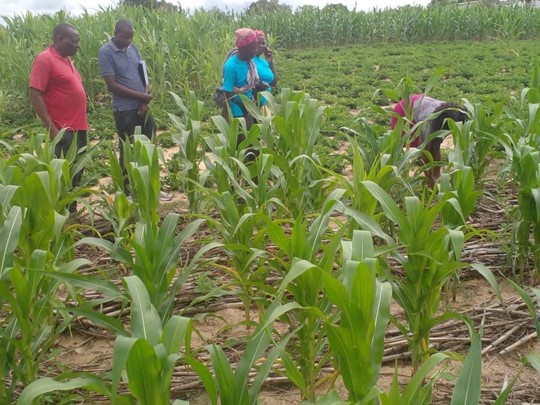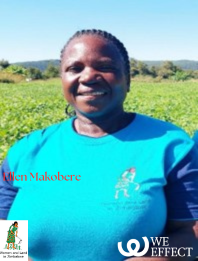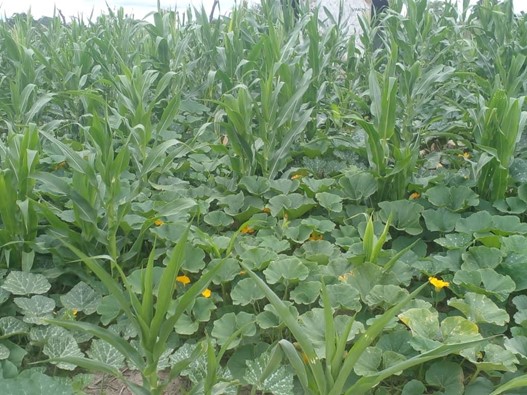Agroecology is deeply rooted in the ecological rationale of traditional small-scale agriculture, representing long established examples of successful agricultural systems characterized by a tremendous diversity of domesticated crop and animal species maintained and enhanced by ingenuous soil, water, and biodiversity management regimes, nourished by complex traditional knowledge systems.

 A partnership between We Effect and Women and Land Zimbabwe has created a critical opportunity to support and strengthen women farmers to embrace agroecology as a means of sustainable farming in the wake of climate change. Ellen Makobere, a member of the Rural Women Association from Shurugwi District in Zimbabwe. is a smallholder farmer has become a champion of agroecology (AE) in her district. Her journey has motivated many women in her community to adopt agroecological practices. “I volunteer in community to teach other farmers agroecology. It hasn’t been easy but through the capacity building from Women and Land, I am able to mobilise other women farmers and have practical sessions”, she says, “I feel it is now my duty to pass on the knowledge I have gained to guarantee sustainability for the whole district”, she adds.
A partnership between We Effect and Women and Land Zimbabwe has created a critical opportunity to support and strengthen women farmers to embrace agroecology as a means of sustainable farming in the wake of climate change. Ellen Makobere, a member of the Rural Women Association from Shurugwi District in Zimbabwe. is a smallholder farmer has become a champion of agroecology (AE) in her district. Her journey has motivated many women in her community to adopt agroecological practices. “I volunteer in community to teach other farmers agroecology. It hasn’t been easy but through the capacity building from Women and Land, I am able to mobilise other women farmers and have practical sessions”, she says, “I feel it is now my duty to pass on the knowledge I have gained to guarantee sustainability for the whole district”, she adds.
As she shares her experiences and benefits of agroecology, which includes mulching, growing of short season varieties and traditional seeds including small grains. “Ever since I started practicing AE, I have never been food insecure. Every year I experience a bumper harvest despite erratic rainfalls. Agroecology has taught me to become innovative and to experiment to find best solutions that fit the current climatic conditions. Agroecology has taught me to grow small grains which are short seasoned, climate resilient (sorghum, millet, rapoko, roundnuts, pumpkins and groundnuts) which are locally available, I don’t need to buy them from seed shops, Ellen emphasises.
As an AE champion, whenever she finds an opportunity to interact with duty bearers or any policy makers, she always shares her experiences and lobby that government should take decisive steps to support agroecology practices instead of promoting food production systems that are imperialistic in nature which are making rural farmers poorer and more vulnerable to climate change effects.
Ellen works to demystify myths that Africa needs to depend only on hybrid seeds and synthetic fertilisers for it to be food secure. Her story has highlighted multiple benefits of agroecology which include affordable and sustainable ways to boost agricultural yields while increasing farmers’ income, food security as well as their resilience to climate change.
